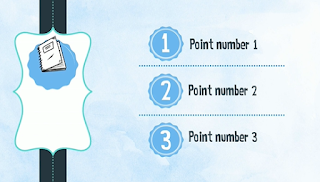This test-taking blueprint will follow two important concepts:
After you know the date of the test, work backward to figure out when you should start studying.
When planning out your studying, keep in mind “Hofstadter's Law” which states that a task always takes longer to complete than you expect.
If you have already taken a test with this teacher, try to figure out what the previous tests emphasized.
* Did most of the questions come from class notes?
* The study guide?
* The textbook?
Each time you finish a test in your class take a few minute and reflect on it while it is still fresh on your mind.
Write notes about it in your planner so you can refer to them before the next test. These notes will be very helpful for future tests.
When you have not taken a test yet with this teacher, it is little more challenging to pinpoint what the test will emphasize.
Talk to your friends and classmates. Chances are you can find someone who has taken the class before and they can give you some insight.
Here are some tips on studying your notes effectively:
The more active you are with your notes then the greater the chance of recall you will have.
Here are several suggestions for actively reviewing your notes:
You may want to start by rereading the notes and underlining important points using different colors to represent different topics.
You can rewrite your notes into an outline. This is very helpful because it forces you to filter your notes into sections and subsections which in turn helps your brain make connections. Your brain is having to read, process, and categorize the notes which helps greatly with recall later. This is my daughter's top strategy for preparing for a major test. Once you have the outline, you can quickly read over it to refresh main points.
Here is an example of an outline from notes.
You can condense your notes into short bullet points. These bullet points can be written on a notepad or on index cards. This, again, allows you to just concentrate on the most important facts.
Another option is to create a mind map of your notes. Essentially, mind maps are a web or diagram of information stemming from your main topic. Another important feature of a mind map is how you can condense 10 to 15 pages of notes down to just a diagram. Once the mind map is created you can look over it several times.
A study guide can be a really helpful tool the teacher gives for a test.
Often it is easier to complete the study guide after you have gone through your notes because you are more familiar with the material.
Once the study guide is complete you have several options.
Avoid the temptation of just waiting for answers from your teacher before completing your study guide. Actively answering the study guide helps with recall and learning this information. It is always best to answer the study guide and check your answers rather than just writing down the answers given.
Once the study guide is complete you have several choices:
* Make a test from the study guide and then take it for practice.
* Convert the study guide to index cards and review them. One advantage to this method is that you can shuffle up the questions. This simulates test conditions in which the teacher usually mixes up the topic. Shuffling the different topics will greatly enhance recall of the material.
For example, let’s say you have a math test coming up. You can write down problems on one side of the index card and the solution on the other side. Mix the notecards and solve the problems. This shifting from one concept to another is a powerful way of learning the material.
Book
First, as you read you can highlight important information.
You then can reread the highlighted areas of your book. If you know that the teacher pulls heavily from the book, you may want to condense this highlighted information into an outline or bullet points.
If you don’t have time to convert your highlighted text to notes, you can at least stop after reading several pages and try to recall key points without looking at the page.
Another way to approach the material is reading it like you have to teach someone the material.
Creating test questions that would go along with what you are reading also greatly enhances recall later.
A couple of tips for preparing for a Math test.
Your Recall will also increase in Math if you work the problem out and write it down instead of just glancing at it and saying “ oh I understand this.”
When studying for a math test you can increase recall by working on a variety of problems. Work on one section of similar problems, move to a new section, and then back to the original section.
You may enjoy.......







0 comments:
Post a Comment